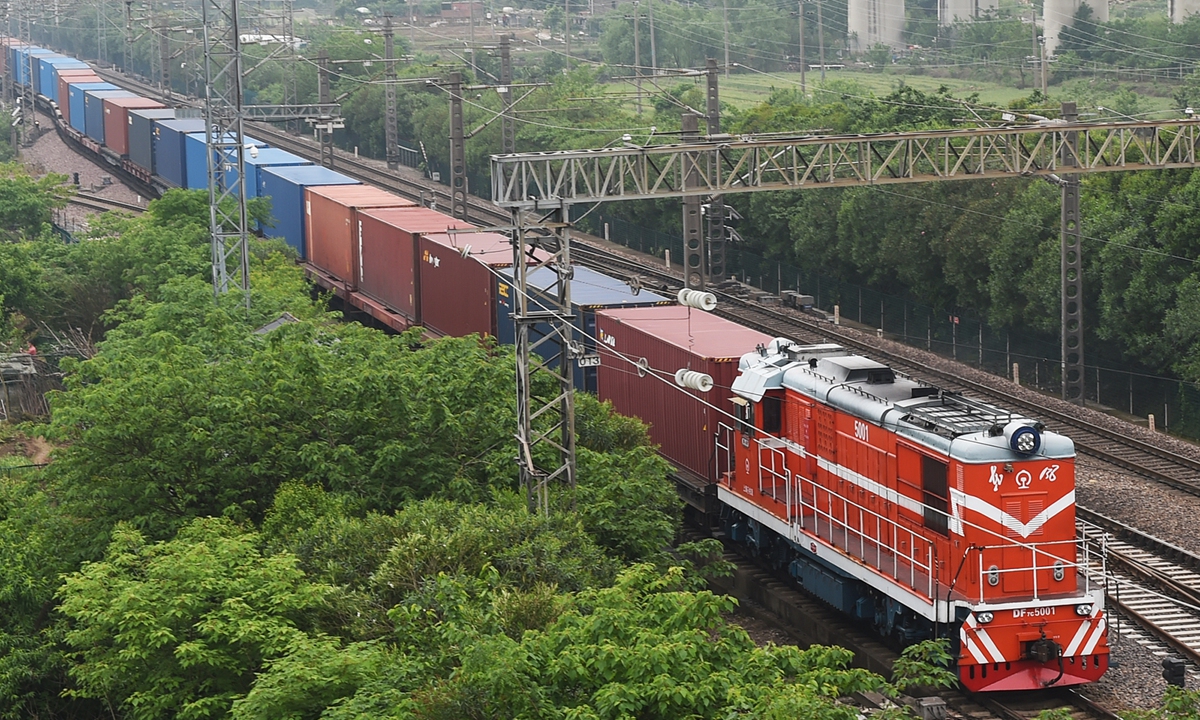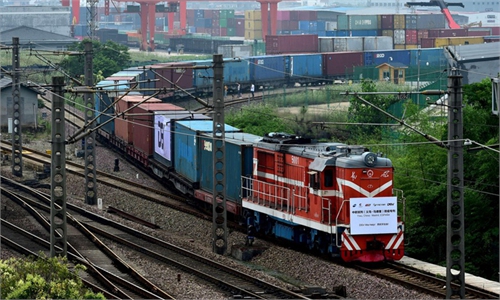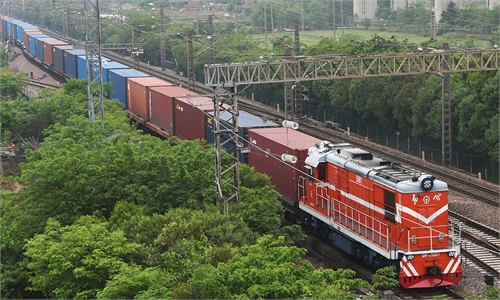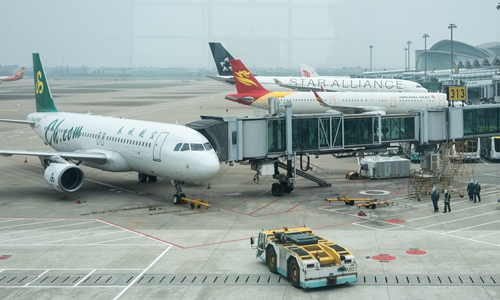
The 500th "Yiwu-Xinjiang-Europe" China-Europe freight train departed from Yiwu in East China's Zhejiang Province bound for Madrid, Spain on May 1, 2022. Photo: VCG
Merchants in Yiwu, the world's small commodity capital in East China's Zhejiang Province, are doing what they can to ensure an undisrupted flow of goods, after the city reported dozens of COVID-19 cases this week. The China-Europe freight train service has remained normal.
Yiwu announced tightening of epidemic control measures from Wednesday. The city advised citizens not to leave unless necessary and it ordered all businesses in closed buildings to suspend work on Thursday.
Financial news outlet yicai reported that some companies were grinding to a halt with orders withdrawn and transportation stalled.
The outbreak has happened during the critical Christmas goods shipment season, during which merchants are busy shipping out finished orders that buyers placed for this year's Christmas holiday.
Zhao Libi, with the Yiwu Christmas Products Association, told the Global Times on Thursday that since Wednesday, traffic had stopped, including transportation of goods from factories to sea ports.
Merchants of Christmas goods are watching how things unravel, but currently it is hard to tell how much of the business will be impacted, Zhao said.
However, merchants, who have had experience in dealing with the virus and its disruptions, are coping adeptly.
A senior industry insider with the China-Europe freight train based in Yiwu told the Global Times on Thursday that his company has already sorted out, loaded and stored enough goods at the city's railway depot to sustain a month's operation.
"We just did this in case… we were told to work from home," the insider said. "From the railway depot, getting onto the China-Europe cargo freight train services won't be affected at all."
The insider said that the epidemic control policy has been tightened to check the virus. Negative nucleic acid test results within the past 24 hours, instead of the previous 72 hours, are now required to enter or exit the expressway, but overall flows of people and goods are normal.
An official overseeing the operation of Zhejiang's China-Europe cargo freight services told the Global Times on condition of anonymity that for the moment, freight services are operating as usual.
"At the four railway depots in Zhejiang, there is plenty of cargo and the trains are running normally. For the moment, I don't see any impact of the epidemic," said the official, who spent the afternoon inspecting the situation.
"Looking ahead, it depends on how long the tightened control measures will last," said the official.
The official revealed that 1,345 trains had set off from Zhejiang's four railway depots including Yiwu as of end-July.
On Wednesday, Zhejiang Governor Wang Hao urged during his inspection tour in Yiwu the coordination of COVID-19 prevention and control work with economic development, ensuring key supply chain smoothness and the flow of people and goods to reduce the negative impact of the epidemic to the minimum.
As of June 30, a total of 808 cargo trains had left Yiwu for Europe, an increase of 9.5 percent year-on-year, and the monthly train services to Europe had reached 133 this year, according to yixinou.com.
The city managed to stay unscathed when epidemic outbreaks hit Shanghai in April and May. In the first half, the city's foreign trade jumped 32.8 percent year-on-year to reach 222.25 billion yuan ($32.9 billion).




